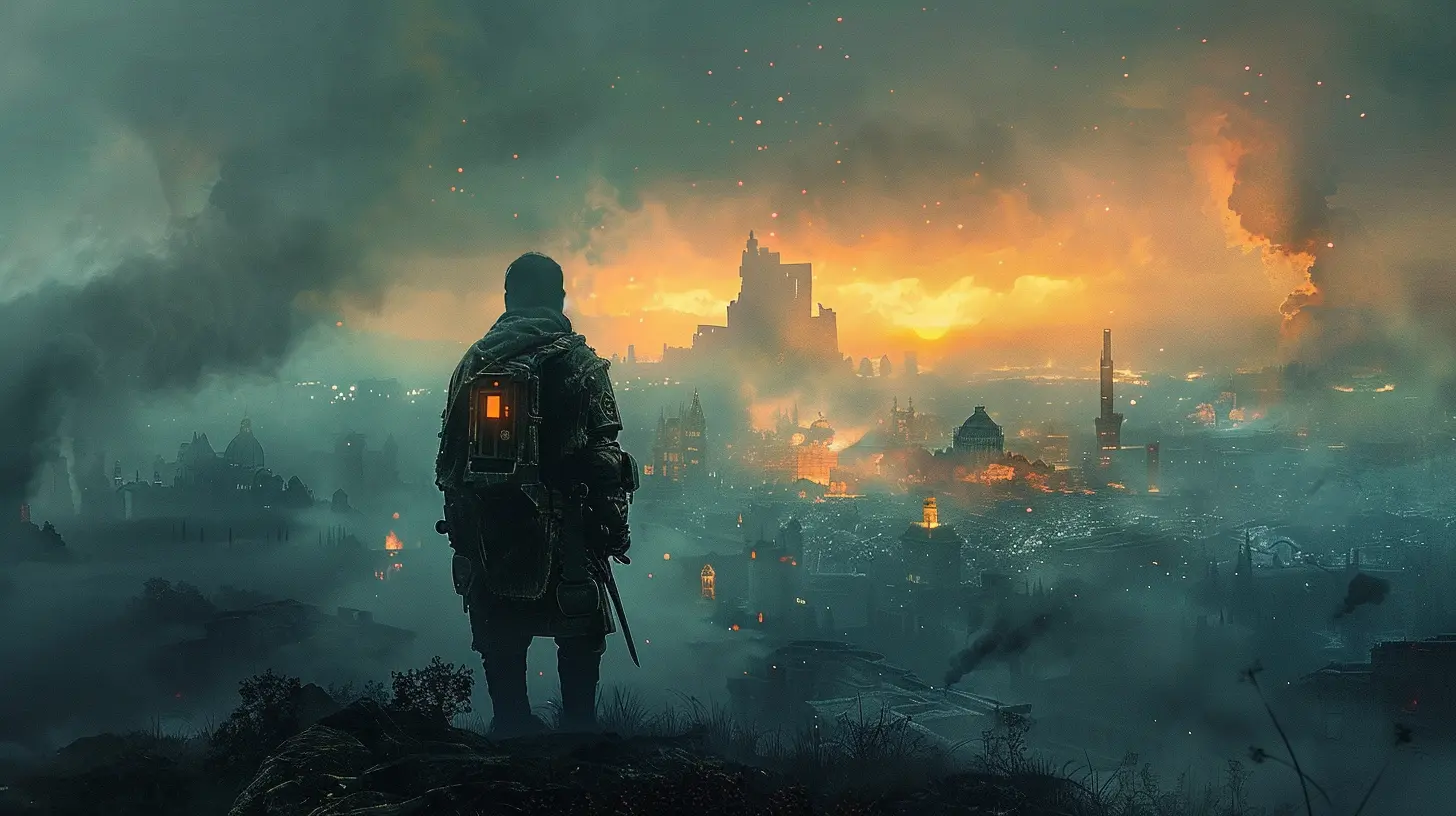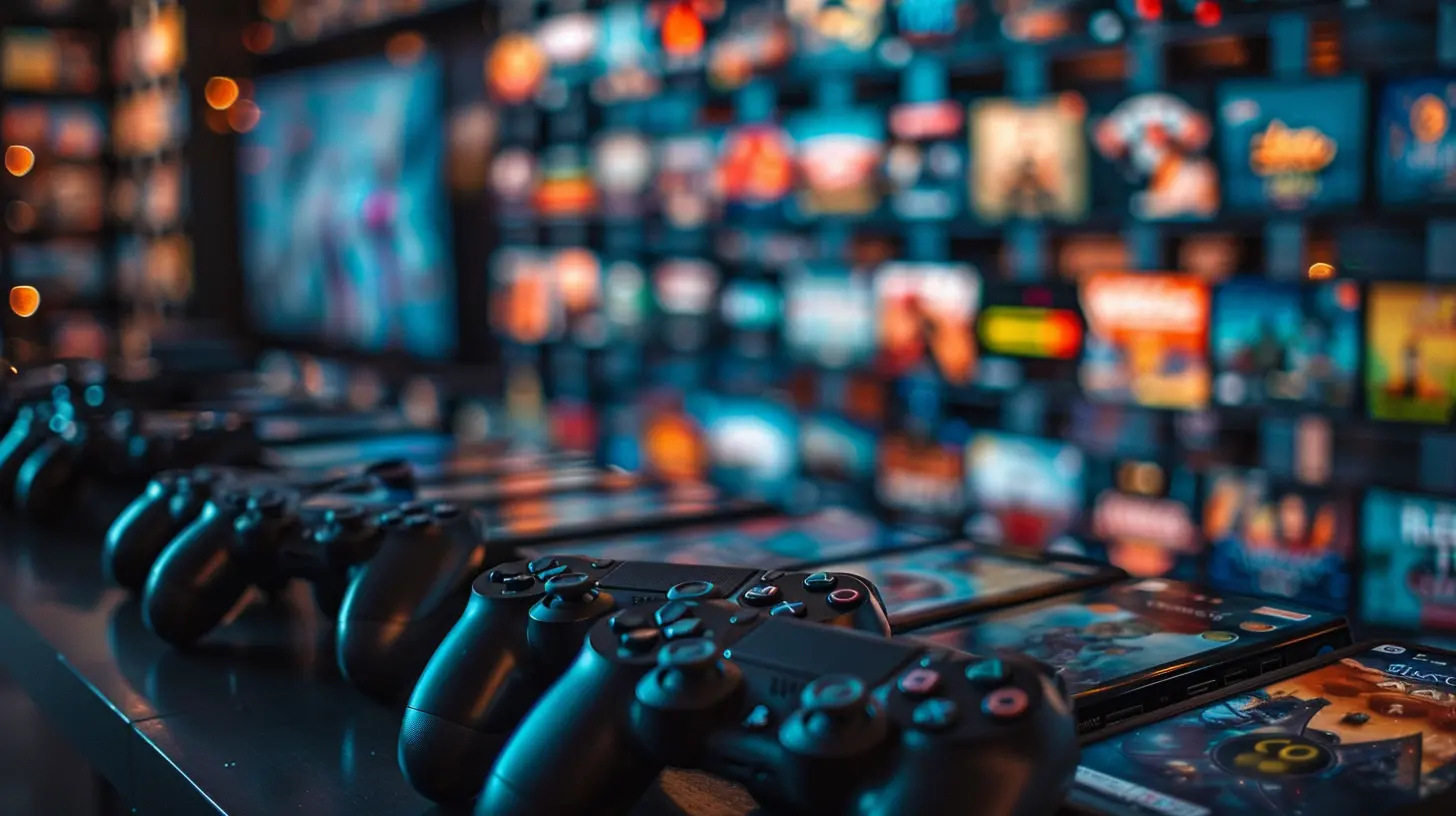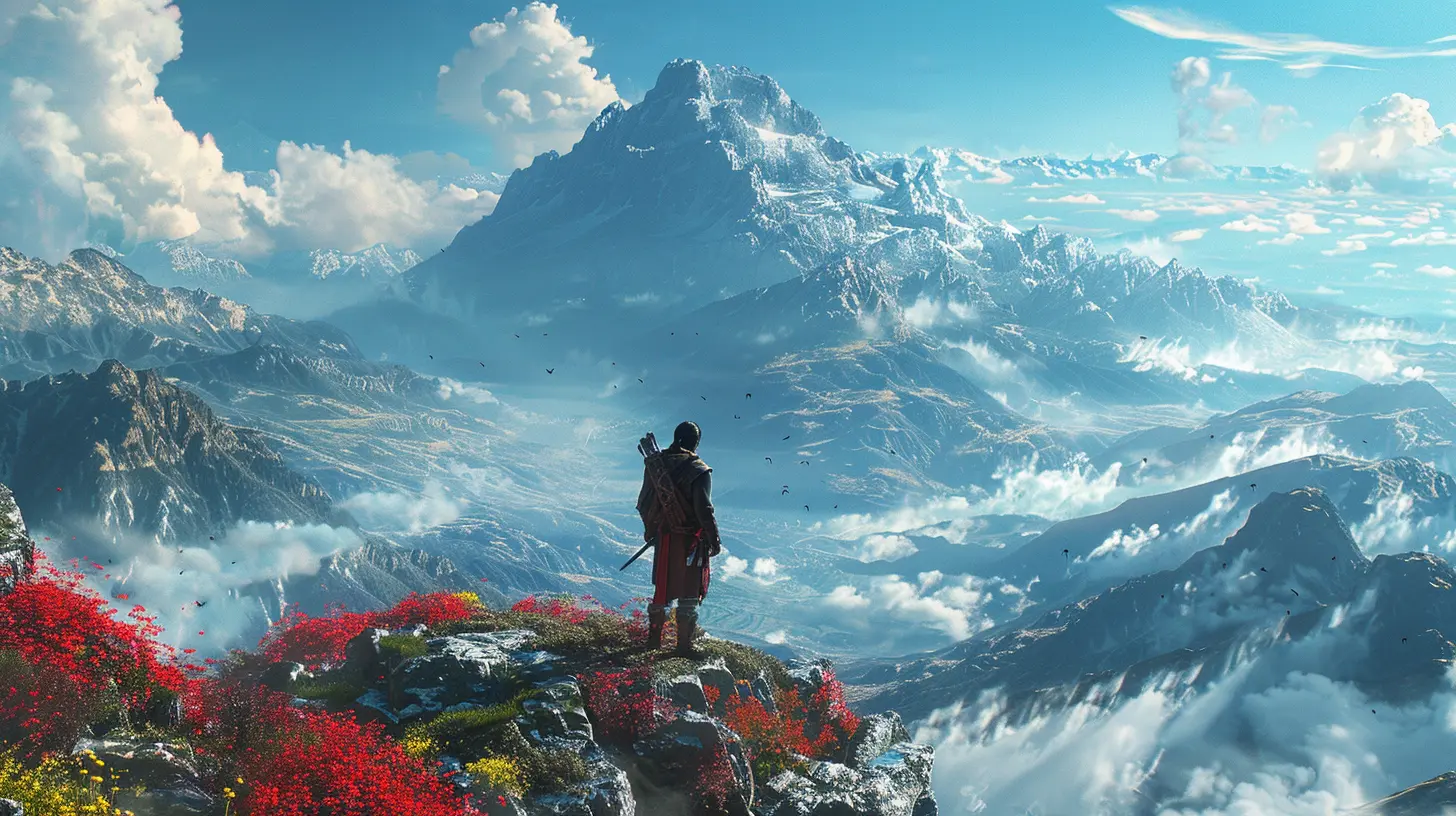Single Player Games: The Unsung Heroes of Gaming Longevity
12 November 2025
Let’s be real — in a gaming world that’s constantly being bombarded with battle royales, online co-ops, and multiplayer shooters, single-player games are often overlooked. They're like the introverted geniuses of the gaming universe — not always loud, but always brilliant. While everyone’s busy chasing kills in Warzone or building empires in Fortnite, there’s something magical simmering quietly in the background: the unmatched depth and emotion of single-player experiences.
In this article, we’re turning the spotlight on single-player games — the unsung heroes that have not only stood the test of time but have also shaped the very foundation of what makes gaming special. Whether you’re a die-hard fan or someone just dipping your toes into narrative-rich gameplay, let’s talk about why single-player games are the real MVPs of gaming longevity.
The Timeless Allure of Solo Adventures
So, what is it about single-player games that keeps us coming back, year after year?Well, for starters, they’re timeless. You could pick up a game like The Legend of Zelda: Ocarina of Time, Skyrim, or Mass Effect, years after their release and still be absolutely hooked. Why’s that? The answer is simple: storytelling, immersion, and personal connection.
When you play a single-player game, you’re not just another character in a massive online lobby — you're the hero. The journey is yours. The choices you make actually shape the world around you. It’s an experience tailor-made for one, and that intimacy is what makes it unforgettable.
Storytelling That Hits You Right In The Feels
Ever cried during a multiplayer match? Didn't think so.But play something like The Last of Us, Red Dead Redemption 2, or Life is Strange and suddenly you’re going through a whole box of tissues. Single-player games excel at weaving deeply emotional, thought-provoking narratives that stick with you long after you’ve powered off the console.
That connection between player and story? That’s a bond you don’t really get when your teammate is teabagging enemies in a chaotic PvP match. And that’s okay. Different games scratch different itches. But single-player games — they speak to your soul.
Immersion Without Distractions
Picture this: You’re exploring an ancient ruin, shrouded in mystery, and the music is swelling as you uncover a long-lost artifact. Just as you’re getting chills, some random player online starts barking orders into the mic or spamming “ez clap” in chat.Yeah… immersion killer.
Single-player games offer a distraction-free environment. It’s just you and the world the developers poured their hearts into. No laggy players. No server disconnects. No trash talk. Just pure, uninterrupted adventure.
It’s like reading a good book — except you get to wield the sword, solve the puzzles, and make the choices.
They Age Like Fine Wine
Let’s be honest: multiplayer games are fads. They come and go faster than memes on the internet. PUBG had its moment, Among Us was cool for a hot minute, and now everyone’s jumping on whatever is trending this week.But single-player games? They stay.
Think about The Elder Scrolls V: Skyrim. That game was released in 2011 and people are STILL playing it. Modding it. Loving it. Why? Because the core experience is so rich and fulfilling, it doesn't rely on player bases or leaderboards. It’s just a beautiful world waiting for new adventurers.
Creative Freedom and Artistic Risk-Taking
Multiplayer games usually play it safe. They have to. Balance issues, competitive fairness — it’s a constant juggling act.But single-player titles? Now that’s where developers get to stretch their creative wings. Whether it’s the unsettling abyss of Dark Souls, the hand-painted world of Ori and the Blind Forest, or the time-bending chaos of Control, solo games dare to be different.
They explore weird, wild, and wonderful ideas that might flop in a competitive setting — but flourish when the only opponent is your own curiosity.
Built for Replayability
Here’s the kicker — just because a game is single-player doesn’t mean it’s one-and-done.Take The Witcher 3, for example. With multiple endings based on the choices you make, a single playthrough just isn’t enough. Or Fallout: New Vegas — you could play that game five different times and have five very different experiences.
And don’t even get me started on open-world RPGs with mod support. The replay value is through the roof.
No Internet? No Problem.
We’ve all been there. The Wi-Fi dies, the servers are down, or your ping is through the roof. Suddenly, your online shooter is about as useful as a chocolate teapot.But single-player games? They don’t need the internet. They don’t care about connectivity or server maintenance. They’re loyal. They’ve got your back. You can fire up Hollow Knight or Celeste whether you’re on a plane, a train, or stuck in the middle of nowhere.
It’s pure, portable joy — no strings (or cables) attached.
A Playground for Modders and Creators
One of the coolest things about single-player games is how they open the door for creative communities. Modding is a massive part of gaming longevity, and it thrives best in solo titles.Look at Skyrim again — there are literally thousands of mods that enhance, twist, or completely reinvent the game. Want to ride a dragon into battle wearing SpongeBob’s face? There's probably a mod for that.
These player-made additions breathe new life into old games, keeping them fresh and exciting for years.
The Rise of Indie Masterpieces
Let’s take a moment to appreciate indie developers. These passionate creators have been churning out brilliant single-player gems like Hades, Stardew Valley, Undertale, and Dead Cells.These games don’t need massive budgets or live-service monetization. They shine through smart design, heartfelt storytelling, and raw creativity.
And guess what? Players love them. Turns out you don’t need 100 friends online to have a good time — sometimes, all you need is a pixelated farmer and a dream.
Giving the Brain a Workout
Believe it or not, single-player games aren't just about escapism — they flex your brain too. Puzzle-based adventures like The Witness, Portal, or Braid challenge your logic in ways that are both refreshing and rewarding.You’re often required to slow down, think critically, and solve complex problems, all without the stress of a ticking multiplayer timer or that one teammate always charging in head-first.
It’s kinda like mental yoga… but with portals and time travel.
Embracing the Solo Grind
In an age where social gaming is hyped up, there's something truly therapeutic about grinding solo. No pressure to compete. No one to impress. Just your pace, your goals, your game.Whether it’s collecting every moon in Super Mario Odyssey, maxing out your skills in Assassin’s Creed Valhalla, or simply taking in the scenery in Ghost of Tsushima, the grind feels personal — and that’s what makes it special.
A Safe Space for All Kinds of Gamers
Not everyone wants the intensity of online competition or the chaos of group chats. For many, single-player games are a haven — a safe space where they can enjoy games on their own terms.New players, introverts, folks with anxiety — single-player experiences cater to a broad spectrum of gamers who just want a compelling adventure without the noise.
In a way, these games are like comfort food for the gaming soul.
Nostalgia Never Dies
Do you ever boot up an old game just to feel something?That’s the power of nostalgia, and single-player games are soaked in it. They’re time capsules of our teenage years, reminders of simpler times, or just beautiful escapes we keep coming back to.
Games like Final Fantasy VII, Silent Hill 2, or even Pokemon Red carry emotional weight that persists across decades. Multiplayer servers shut down. Online trends fade. But single-player stories live forever.
Why The Industry Can't Afford To Ignore Them
It's easy for studios to chase the next big online trend — especially when there's potential for recurring revenue through microtransactions and battle passes. But not every game can (or should) be a service.Single-player titles often become critical darlings. They win Game of the Year. They push the boundaries of what games can be. And they build loyal fanbases that keep buying — and replaying — their games for years.
They're not just good business. They're essential for a healthy, balanced gaming landscape.
Final Thoughts: The Solitary Joy That Endures
At the end of the day, single-player games are like that close friend you can always count on. They don’t need the crowd, the noise, or the spotlight to be amazing. They’re here for the long haul — patient, powerful, and packed with potential.So the next time someone says single-player is dead? Just smile, boot up your favorite story-driven epic, and lose yourself in a world built just for you.
Because some journeys are better alone — and those are often the ones we remember the most.
all images in this post were generated using AI tools
Category:
Single Player GamesAuthor:

Luke Baker
Discussion
rate this article
1 comments
Kian Hensley
Great article highlighting the significance of single-player games! They truly offer immersive experiences that stand the test of time, allowing players to connect deeply with narratives and characters. It's refreshing to see appreciation for these gems in the gaming community. Thank you!
November 18, 2025 at 4:56 PM

Luke Baker
Thank you for your kind words! I'm glad you enjoyed the article and share the appreciation for the immersive experiences that single-player games provide.


